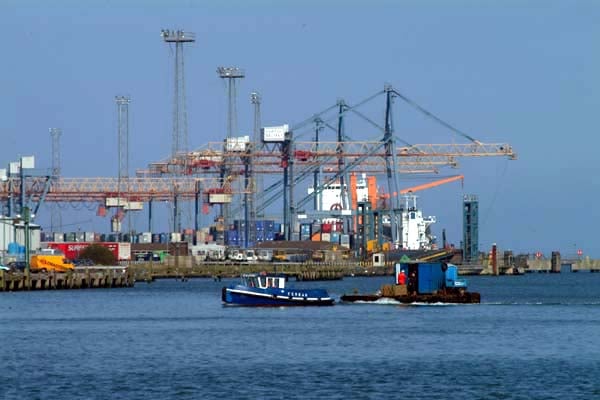Displaying items by tag: Commerce
Port of Belfast
Port of Belfast
The Port of Belfast is Northern Ireland's principal maritime gateway, serving the Northern Ireland economy and increasingly that of the Republic of Ireland. About 60% of Northern Ireland's seaborne trade and 20% of the entire island's is handled by the Port which receives over 6,000 vessels each year.
The Port is also a major centre of industry and commerce - its Harbour Estate is home to some of Northern Ireland's most important urban regeneration projects and it is the region's leading logistics and distribution hub.
With 1.2 million passengers and half a million freight units annually, Belfast is Ireland's busiest ferry port. It is also the island's leading dry bulk port, dominating the market with regard to imports of grain and animal feeds, coal, fertilisers and cement, and exports of scrap and aggregates. Over 95% of Northern Ireland's petroleum and oil products are also handled at the Port.

History of the Port
The origins of the port in Belfast can be traced back to 1613, when, during the reign of James I, the town was incorporated as a borough by royal charter, with provision for the establishment of a wharf or quay. As a result, a quay was constructed at the confluence of the Rivers Fearset (Farset) and Lagan and the development of the Port of Belfast began.
Records show that by 1663 there were 29 vessels owned in the town with a total tonnage of 1,100 tonnes. Trade continued to expand throughout the century, to the extent that the original quay was enlarged, to accommodate the increasing number of ships.
By the early eighteenth century the town had replaced Carrickfergus as the most important port in Ulster and additional accommodation was considered necessary. A number of privately-owned wharves were subsequently constructed on reclaimed land. Throughout the century trade continued to expand as Belfast assumed a greater role in the trading activities of the country as a whole. In 1785 the Irish Parliament passed an act to deal with the town’s burgeoning port. As a result, a new body was constituted: The Corporation for Preserving and Improving the Port and Harbour of Belfast, commonly called “the Ballast Board”.
Although at this point the Port was well established it remained disadvantaged by the natural restrictions of shallow water, bends in the channel approach and inadequate quays. These problems, together with an increasing volume of trade, led to a new government act of 1837. This reconstituted the Board and gave it powers to improve the port, through the formation of a new channel. Initial work on straightening the river commenced in 1839 and by 1841 the first bend had been eliminated. The creation of what was to become the Victoria Channel had begun.
In 1847 the Belfast Harbour Act repealed previous acts and led to the formation of the Belfast Harbour Commissioners. This new body, with much wider powers, completed the second stage of the new channel two years later. From that time the Commissioners have developed and improved the Port, reclaiming land to accommodate new quays, new trades and changes in shipping and cargo-handling technology. The efficient, modern port of today is evidence of the foresight and commitment of successive generations of Harbour Commissioners.
Port of Belfast, Harbour Office, Corporation Square, Belfast, Northern Ireland BT1 3AL. Tel: 028 9055 4422
Commercial Contacts – Email: [email protected] • Tel: 028 9055 4422 • Fax: 028 9055 4420
Marine Contacts – Email: [email protected] • Tel: 028 9055 4422 • Fax: 028 9055 3017
Estate Contacts – Email: [email protected] • Tel: 028 9055 4422 • Fax: 028 9055 4411
Corporate Contacts – Email: [email protected] • Tel: 028 9055 4422 • Fax: 028 9055 4420
Human Resources – Email: [email protected] • Tel: 028 9055 4422 • Fax: 028 9055 4420
Harbour Police – Email: [email protected] • Tel: 028 9055 3000 • Fax: 028 9055 3001
Harbour Safety – Email: [email protected] • Tel: 028 9055 4422 • Fax: 028 9055 3020
Calls within the Belfast Harbour Police telephone system may be monitored or recorded























































